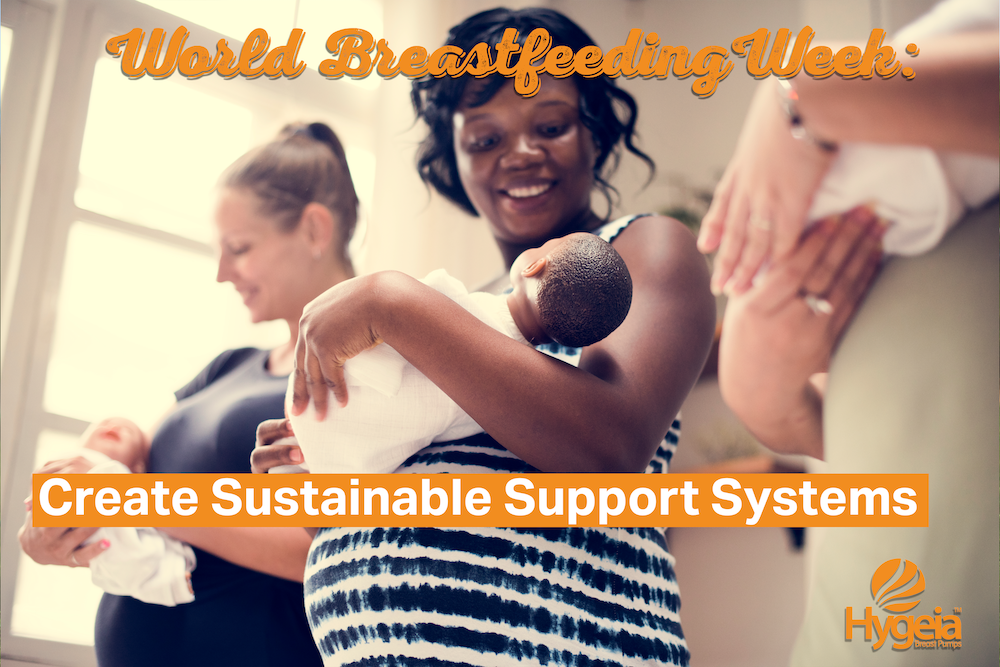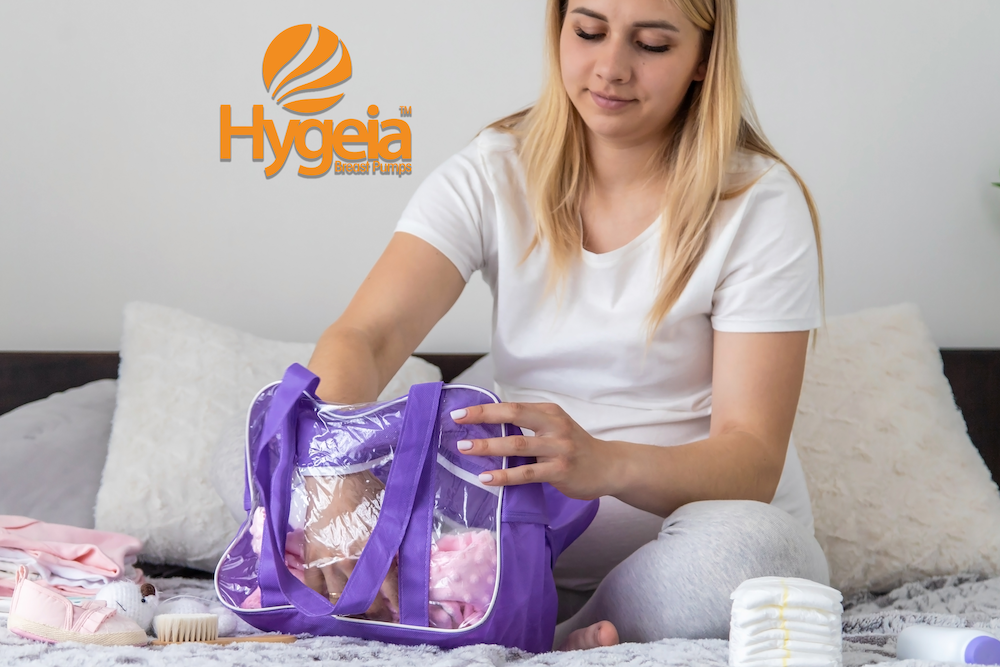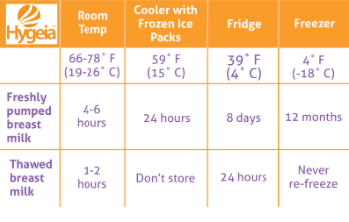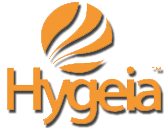
The most common word used to describe breastfeeding is “natural”. This act shared between mother and baby reflects the beauty found in the natural role of motherhood. “Natural” also reflects why breastfeeding needs prioritized in today’s world. Breastfeeding is a natural solution and therefore a sustainable one. World Breastfeeding Week 2025 inspires us to look beyond the immediate act of feeding and consider a much bigger picture. This blog post will dive into the this year’s theme: “Prioritize Breastfeeding: Create sustainable support systems.”
The Environmental Toll of Artificial Feeding
Hygeia is in full support of all mother’s and how they choose to feed their babies, be it breastfeeding or formula. Fed is best. No questions. This is truly the most important thing for every baby and that every mom knows what is best for her and her baby.
However, it is important to recognize that the environmental impact of artificial feeding is considerable. The entire process of formula production is energy-intensive and resource-heavy. From sourcing ingredients to manufacturing, packaging, and global distribution, it is a far cry from a “natural renewable food” like breast milk. One one hand, breast milk is environmentally safe and produced and delivered to the consumer without pollution, packaging, or waste. Artificial milk options demand significant amounts of electricity, fuel for transportation, and water for processing and cleaning. The waste generated, from non-recyclable containers to discarded formula, places a heavy burden on our planet’s ecosystems.
Building Sustainable Support Systems
Recognizing breastfeeding’s vital role in a sustainable future isn’t enough. We must create robust and sustainable support systems for families. There are numerous ways this can be done.
- Community Support: Grass roots is where all things begin. Fostering networks of lactation consultants, peer support groups, and family encouragement are necessary for normalizing breastfeeding. At Hygeia, we offer lactation support in partnership with Nest Collaborative. These virtual breastfeeding consults are accessible anytime, anywhere, and covered by most insurance plans.
- Workplace Policies: For breastfeeding to be normalized there must be support in the workplace. This will happen through advocacy for comprehensive paid maternity leave and flexible work arrangements. Additionally, moms need dedicated breastfeeding-friendly environments with clean, private lactation spaces.
- Healthcare System: The support and education must begin from day one for mothers. We must ensure that healthcare providers are well-trained in lactation support. Facilities must also adhere to best practices like the Baby-Friendly Hospital Initiative.
- Policy and Advocacy: Globally, we must endorse policies that protect, promote, and support breastfeeding. This includes strict adherence to the International Code of Marketing of Breast-milk Substitutes to counter misleading marketing.
- Changing the Narrative: All of these steps will play a part, but individuals must also work to normalize breastfeeding in all settings. Encourage a mom who is breastfeeding in public. Educate a friend on her public breastfeeding rights. Help dismantle any lingering stigma around breastfeeding.
Breastfeed
At Hygeia, we believe that empowering mothers is the first step toward a more sustainable future. By providing you with access to our high-quality breast pumps, we aim to make breastfeeding a comfortable and efficient experience. Every journey is unique, which is why we’re dedicated to helping you get your pump 100% covered by your insurance plan. We are removing financial barriers to this natural choice.
Supporting a mother is an act of environmental stewardship. By strengthening the systems around us—from our communities to our workplaces—we can make breastfeeding a realistic option for more families. It’s an investment in a healthier tomorrow, for our children and for our planet. Therefore, join us in championing this natural, sustainable solution during World Breastfeeding Week.

Happy Mother’s Day to all the incredible moms out there! This day is for celebrating you, your strength, your love, and everything you do. At Hygeia Health we believe you deserve to gift yourself this Mother’s Day!
We know that he month of May is one of the busiest times of year for countless mothers. School awards, spring flings, enjoying playdates, and sports schedules. It’s a time of fun but often a full schedule, so finding time to sleep can be hard enough. Never mind getting a relaxing day of being pampered.
Hygeia’s got you with the best gifts that seamlessly integrate into a busy life and offer moments of peace, joy, or efficiency. This Mother’s Day, consider gifting yourself something simple yet powerful: self-care through the amazing tech tools at your fingertips.
1. The Gift of Calm: A Meditation App Subscription
Think: Calm, Headspace, Insight Timer
Why it’s a gift: Even five minutes of guided meditation can bring a sense of peace and reduce stress. These apps offer a variety of sessions tailored for busy schedules and specific needs like sleep, anxiety, and focus.
Bonus! Check out this special series for moms on the Calm app.
2. The Gift of Stories: An Audiobook Subscription
Think: Audible, Spotify Premium (with audiobooks), Google Play Books,
Why it’s a gift: Escape into a captivating story while folding laundry, nursing, or when a mental break is needed. Audiobooks allow you to “read” even when your hands are full.
Bonus: Libraries also offer collections of audiobooks! All you need is a library card and you have free access. Check out Libby or Hoopla.
3. The Gift of Your Favorite Soundtrack: A Music Streaming Premium Account
Think: Spotify Premium, Apple Music, Amazon Music Unlimited
Why it’s a gift: Ad-free listening to your go-to playlists can instantly boost your mood, energize you for a workout, or provide a soothing backdrop to your day. Create playlists for different moods and activities.
Bonus! Need a good playlist? Steal some ideas from this Mother’s Day playlist!
4. The Gift of Knowledge on the Go: A Podcast Subscription/App
Think: Apple Podcasts, Spotify, Overcast
Why it’s a gift: Learn something new, be entertained, or feel connected to a community. Podcasts are perfect for your commute or while pumping. There’s a podcast for every interest!
Bonus! Need to find a good podcast? Check out this list of top podcasts for moms!
5. The Gift of Delicious Recipes: A Meal Planning App (Free Versions Often Available)
Think: Mealime, Plan to Eat, BigOven
Why it’s a gift: Take some of the mental load out of meal prep. Get recipe ideas, filter by ingredients or prep time, and other basic planning features.
Bonus! Most apps have a free version available and they are loaded with great content!
6. The Gift of Gentle Movement: An Online Yoga or Exercise App
Think: Down Dog, Peloton, Nike Training Club
Why it’s a gift: Even short bursts of movement can improve your physical and mental well-being.
Bonus! Many apps offer free trials, allowing you to explore what works for you without commitment.
7. The Gift of Captured Memories: A Photo Backup/Organization App
Think: Google Photos, iCloud Photos, Dropbox
Why it’s a gift: Ensure your precious photos and videos of your little ones are safely backed up and easily accessible. Organize them into albums to relive those sweet moments.
Bonus! Most of these photo organizers connect seamlessly to photo gift and print tools like Snapfish and Shutteryfly.
Hygeia’s year-round gift to moms
Don’t forget Hygeia Health’s year-round gift available to many expecting and new moms: a breast pump 100% covered by insurance. Every mother deserves access to quality breast pumps. Because many insurance plans cover the cost of a breast pump, we help moms navigate the process and find out if you qualify for a free, high-quality breast pump. Having a reliable pump will alway improve your breastfeeding experience.
Ready to see if you can get a breast pump covered by your insurance? Apply today and let Hygeia Health support your breastfeeding goals.
Remember that self-care isn’t selfish – it’s essential. Gift yourself this Mother’s Day (or any time!) to one (or more!) of these simple tech treats. You deserve it! Happy Mother’s Day from all of us at Hygeia Health, where we are dedicated to supporting your motherhood journey, one pump and one moment of self-care at a time.

Have you ever stared into that freshly pumped bottle and think, “Huh, today’s batch is looking a little…golden?”
Or maybe a hint of blue?
Welcome to the surprisingly colorful world of breast milk, mama!
It’s like nature’s little art project, and while it might have you raising an eyebrow now and then, most of the time, those hues are totally normal and even tell a fascinating story about what’s nourishing your little one. This blog post will be your breast milk color decoder to help you navigate this liquid rainbow with confidence. Let’s dive into the shades and what they typically mean, so you can feel like a total pro when it comes to your amazing milk!
What can impact the breast milk color?
There are three major things that can impact your breastmilk having a slightly different color than the usual and expected white. This includes what you have eaten, the state of your health (or presence of illness), the stage of the milk, and how the milk has been stored, if at all.
Yellow or Orange: The Early Milk
Need to worry? No!
In the first few days after birth, your milk, called colostrum, is often yellow or deep orange. This color comes from beta-carotene, a nutrient that’s good for your baby. Colostrum is packed with antibodies and is very important for your newborn’s health. As your milk transitions, it may still have a yellow tint for a while. And you might also note that consuming turmeric can also turn your breast milk golden.
White or Creamy: Mature Milk
Need to worry? No!
Around two weeks after birth, your milk will likely become white or creamy. This is mature milk. The fat content in the milk gives it this color. Milk expressed at the end of a feeding or pumping session, called hindmilk, is usually whiter because it has more fat.
Thin and Bluish: Foremilk
Need to worry? No!
At the start of a feeding or pumping session, the milk might look thin and even a little bluish. This is foremilk. It has more water and lactose and helps to quench your baby’s thirst. This coloring can also indicate a higher level of electrolytes in your milk.
Green: When It Might Appear
Need to worry? No!
Sometimes, breast milk can have a green tint. This is often due to something you ate, like green vegetables such as spinach or kale. Green food coloring in drinks or supplements can also cause this change, but you should note that some medications can have the same effect.
Pink or Red: Usually a Little Blood
Need to worry? Not likely.
Seeing pink or red milk can be alarming, but it’s often not a serious problem. The most common reason is a small amount of blood. This can happen if your nipples are cracked or sore, which is common in the early days. “Rusty pipe syndrome,” where extra blood flow to the breasts causes a little blood in the early milk, can also cause this. It usually goes away on its own. Sometimes, broken blood vessels from pumping can also cause a pink or red color.
Brown or Rust-Colored Milk: Uncommon
Need to worry? No.
Brown or rust-colored milk is usually old blood. This can also be related to rusty pipe syndrome.
When to Talk to Your Doctor
While most breast milk color changes are normal, there are times to seek advice from a doctor or lactation consultant. If you see pink or red milk that doesn’t go away quickly or is more than just a little, it’s best to get it checked. Brown or black milk, especially if you’re not taking any medications that could cause it, should also be discussed with a healthcare provider or lactation consultant. If you or your baby have other symptoms along with a color change, like breast pain or fever, seek medical advice.
Understanding the different colors of your breast milk can help you feel more confident during your breastfeeding journey. At Hygeia Health, we’re committed to supporting you with information and the right tools. We believe every mother deserves access to quality breast pumps. Did you know that many insurance plans cover the cost of a breast pump? Hygeia Health can help you navigate this process and see if you qualify for a free, high-quality breast pump. Having a reliable pump can make your breastfeeding experience smoother, no matter what color your milk may be.
Ready to see if you can get a breast pump covered by your insurance? Apply today and let Hygeia Health support your breastfeeding goals.

Breast pumping has been a lifesaver for many moms, for a various number of reasons in the journey of motherhood. Whether it be something planned, like returning to work or the need to travel, or an unplanned event like a NICU stay, breast pumping is a gift that allows mothers to continue breastfeeding in so many circumstances. That doesn’t mean pumping doesn’t come with its challenges, milk expression being one such challenge.
No matter the advanced technology of a pump, it cannot fully replicate a baby’s unique latch. Expressing milk, even when using a breast pump, can sometimes prove difficult. If you are dealing with issues expressing, use these tips to help you overcome the challenge and maximize your milk production.
Understanding the Basics of Milk Expression
Proper Latch: Ensure your nipples are centered in the pump flange. A poor fit can reduce milk flow. Use our sizing guide to be sure you are using the best size flange.
Comfortable Positioning: Find a comfortable position to pump, whether it’s sitting, reclining, or using a hands-free pumping bra. Consider what positions work best when actually feeding your baby and try those as well.
Relaxation Techniques: Stress and anxiety can hinder milk flow. Practice relaxation techniques like deep breathing or meditation before pumping. Be sure you are in an environment where you feel comfortable, which for many is somewhere alone where you won’t be disturbed.
Boosting Milk Expression
Warm Compresses: Applying a warm compress to your breasts before pumping can help stimulate milk flow. You might try this for a few minutes before you begin the pumping process and continue while pumping, if possible.
Massage: Gently massaging your breasts can help encourage milk release.
Skin-to-Skin Contact: When possible, spend some time skin-to-skin with your baby before pumping. This can help stimulate the let-down reflex.
Pumping Effectively
Pumping Schedule: Establish a regular pumping schedule to maintain your milk supply. Irregularity could be a cause for your body to lessen its supply.
Pumping Frequency: Pump every 2-3 hours during the day, and once or twice at night. Even if your supply has dropped, stick with the frequency to encourage your body to produce more milk.
Pumping Duration: Pump for 10-15 minutes per session, or until your milk flow slows down.
Pumping Techniques: Experiment with different pumping techniques, such as power pumping or alternating between breasts.
Seeking Professional Help
If you continue to experience difficulties with milk expression, consult with a lactation consultant. They can assess your pumping technique, identify any underlying issues, and provide personalized advice.
We are committed to supporting mothers on their breastfeeding journey, particularly those choosing or needing to breast pump. Our high-quality breast pumps are designed to make pumping easier and more efficient. Our pumps are meant to support all mothers, including those struggling with milk expression.
To apply for a 100% insurance-covered breast pump, simply visit our website and fill out the application form. We’ll review your application and contact you with the next steps.
By following these tips and seeking professional help when needed, you can overcome challenges and successfully express your milk. Remember, patience and persistence are key.


Breastfeeding is a beautiful journey that nourishes your baby with the perfect blend of nutrients and antibodies. But for busy moms, pumping allows for flexibility and convenience, ensuring your baby receives the benefits of breastmilk even when you’re not there.
Whether you’re a seasoned pumping pro or just starting out, mastering the process of pumping, storing, thawing, and feeding breastmilk empowers you to confidently navigate your breastfeeding journey. Here’s your comprehensive guide:
Pumping Essentials:
Find Your Rhythm: Establish a pumping routine that works for you. It could be several short sessions throughout the day or longer stretches that fit your schedule. Consistency is key to maintaining milk supply.
Choosing Your Pump: A high-quality breast pump makes a world of difference. Hygeia Health offers a comfortable, efficient, and quiet hospital-grade pump that is free to many through insurance. Consider your needs – portability for on-the-go pumping or a hospital-grade option for frequent pumping sessions.
Perfect Latch & Positioning: Proper positioning and latch ensure optimal milk flow and prevent discomfort. Your baby’s mouth should be wide open, with their chin and lower lip flanged outward. Their tongue should be positioned over a large portion of your nipple and most of the darker area around your nipple, called the areola). This ensures they get enough milk and prevents nipple pain for you. If you’re unsure about your latch, don’t hesitate to ask a lactation consultant for help.
Storing Liquid Gold: Safeguarding Your Breast Milk
Fresh is Best: Freshly pumped breast milk can be stored at room temperature (up to 77°F) for up to 4 hours. This is ideal for short outings or pumping between nursing sessions.
Refrigerator Storage for Later: For longer storage, refrigerate breast milk in the back of the refrigerator where the temperature is most stable. Properly stored milk can last up to 4 days.
Deep Freeze for Long-Term Storage: Breast milk can be stored in the deep freezer (at 0°F or below) for up to 12 months. However, milk quality can degrade over time. Label containers with the date to ensure you use the oldest milk first.
Adding to your Storage: Small amounts of expressed milk may be added to the same refrigerated container or even a frozen container. The key is that the milk you want to add is cooled in the fridge beforehand. Don’t add body-temperature milk to cooled or already frozen milk.
Hygeia’s Storage Solutions: Invest in high-quality breast milk storage bags or containers. Hygeia Health offers a range of leak-proof, BPA-free storage options to keep your precious milk safe, including a cooler bag for temporary storage on the go.
Thawing Treasures: Warming Up Breast Milk Safely
Never Microwave: Don’t even think about it. Not only does microwaving destroy nutrients in breast milk but it can also create hot spots that could burn your baby’s mouth.
Gradual Thawing: The safest method is to thaw frozen breast milk in the refrigerator overnight or generally 12 hours. For quicker thawing, place the sealed milk bag or container in a container of lukewarm water, but never in boiling water. This kind of heat can damage the nutrients. It is also important to not let it thaw at room temperature.
Temperature Check and mixing: Before feeding, test a drop of milk on the inside of your wrist to ensure it’s lukewarm, not hot. Be sure to swirl the milk in the bag or bottle as the milk can separate during storage and you want to blend all the fats.
Limited window: Once you’ve thawed milk and left it at room temperature, you want to feed it to your baby within two hours. If that doesn’t happen, do not refreeze the milk. It’s time to pitch.
Feeding Time! Delivering the Goodness
Room Temperature or Chilled?: Either is fine! Breast milk can be fed to your baby at room temperature or chilled. Some babies may even prefer cooler milk. You can also warm the milk to body temperature but it’s not necessary.
Fresh vs. Thawed: If possible, prioritize using fresh or refrigerated breast milk over thawed milk. Thawed milk may have a slightly different taste or smell. It’s still perfectly safe for your baby; however, it will store longer and you can’t refreeze it once thawed, so save it for later.
Bottles and Nipples: Choose bottles designed for breastfed babies to help prevent nipple confusion. Experiment with different nipple types to find one your baby takes comfortably.
Hygeia’s Feeding Accessories: Hygeia Health offers a variety of bottle and nipple options to ensure a smooth transition between breast and bottle feeding.
Embrace the Journey with Hygeia Health
Juggling motherhood and breastfeeding can be demanding, but pumping empowers you to provide your baby with the irreplaceable benefits of breast milk. Hygeia Health is here to support you every step of the way.
We offer a convenient insurance-covered breast pump program to eligible mothers. Our hospital-grade pump is designed for comfort, efficiency, and portability, making it perfect for busy moms.
Click here to apply for your free breast milk pump today!
With the right knowledge, tools, and support system, you can confidently navigate pumping, storing, thawing, and feeding breast milk. Happy pumping, mamas!






